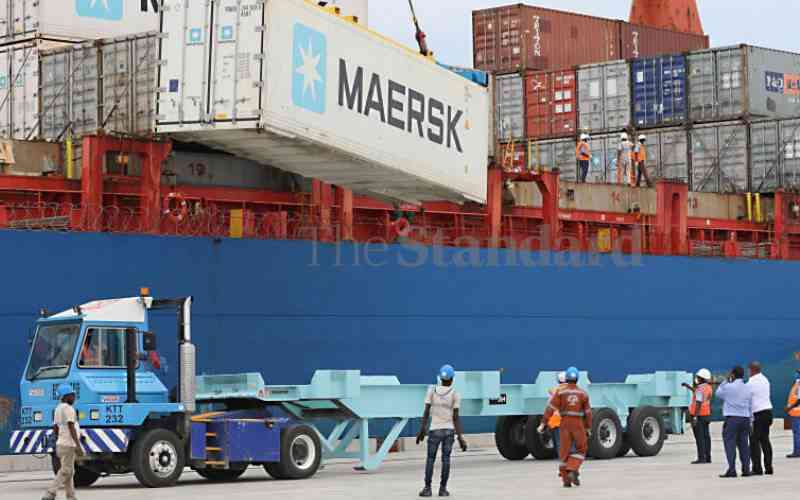×
The Standard e-Paper
Home To Bold Columnists

Kenya targets a stake in international freight rates for imports and exports by strengthening its local shipping industry, a State official has said.
Mining, Blue Economy and Maritime Cabinet Secretary Salim Mvurya said the country is rallying other Africa countries to embrace the use of domestic shipping and maritime services to reduce payment of most of the freight to international shipping lines.